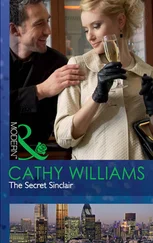In case you were wondering, I knew it was an hour later because I had located the source of all that thunderous ticking and discovered a battery alarm clock in a box marked BEDROOM, still set to California time. I had wound the hands ahead three hours and set it next to me so neither I nor Doctor Paul would oversleep. Eight-twenty-two, it said, and in my Violettinged confusion I thought perhaps this was morning, and we were doomed.
But the cracks between the metal blinds were still black, and my brain, returning bit by broken bit to the sanity of consciousness, knew an immense and bone-rattling craving to see how my good doctor was faring alone in his bedroom.
I didn’t even remember him going to bed. I remembered watching him drink down a few glasses of water to flush the wine out; I remembered taking in an eyeful of Doctor Paul as he opened the bathroom door, half dressed, and slipped away from me. Then the screen turned black and Violet stepped out with her embryonic tortoises and her naked professor.
I rose to my feet, also numb, and padded to the bedroom.
It was a tiny space, just large enough for the metal mattress frame he called a bed, blanketed in an uninspiring white, and a bent metal chair stacked with books. In the glow from the sleepless city outside, I saw Doctor Paul sprawled on his back in the center. He had flung one arm up on the pillow beside him, and his head was turned toward it, as if he were whispering secrets to his elbow. I watched the rise and fall of his white-blanket chest. Even in sleep, his hair achieved a perfect flop that ached to be set right by a loving hand.
I had to turn away.
I had drunk a couple of glasses of water, too. I stopped in the bathroom for relief, and as I stood at Doctor Paul’s sink and washed my hands with Doctor Paul’s soap and stared into Doctor Paul’s mirror, I caught a glimpse not of myself but of Violet: her beauty, her ravenous ambition, her newborn self standing, as I did, on the brink of a jaw-dropping precipice.
I shed my shoes and dress and stockings and folded them neatly. I was surprised to see that my hands were a little shaky. I looked at myself in my shining silk slip, my cat on a hot tin roof. I kissed my finger and touched it to the mirror.
He came awake the instant I slid under the warm white blanket, or maybe he’d never fallen asleep. At any rate, he seemed remarkably lucid. “You again.”
“Like a bad penny.”
He found the edge of my shining silk slip. He lifted it up and over my head.
I whispered: “I’m not scaring you off, am I?”
“Not even close,” he said, that was all, and his skilled surgeon’s hands wrapped around me and took me apart, piece by piece, from my face to my throat, to my breasts and hungry young thighs. I took his face and kissed his sweet mouth, his salty skin, the lovely burnished belly of my dear new Doctor Paul, and there was no stopping us now. It was like painting the Golden Gate Bridge: no sooner had we finished, salt-licked and panting, than we had to start all over again from the beginning.
Violet knows she had only herself to blame for what happened that day. Walter might have made the invitation, but while the Violet Schuyler of 1911 was still sexually innocent, she was nobody’s fool.
As she walked down the darkened paving stones of Magdalen Street, with Dr. Grant at her side keeping up a reassuring stream of chatter, she knew his suggestion of a private meeting had not been made thoughtlessly. They might have gone to a tea shop on the high street, or even a respectable hotel lobby, some public place, well lit and filled with people. There was no need to rendezvous at his house.
He was speaking of telephones. “I’ve never quite liked the things, to be perfectly honest. As a means of communication, they’re wholly unsatisfying. One can’t hear the other party properly, one hasn’t the assistance of gesture and tone. It has all the disadvantages of communicating by letter, without the advantage of being able to express oneself with any sort of detail or subtlety.”
Violet, who hated telephones, found herself saying, “But at least they’re immediate. If you want a doctor, or the police—”
“Yes, for emergencies, of course. But it’s a disaster for human communication.”
“And you pride yourself on being so very modern.”
Dr. Grant laughed. “Yes. I suppose one’s got to be old-fashioned about something .”
They crossed Broad Street, under the dull orange glow of an arc lamp, and for an instant, as a motor-omnibus rattled near in a jangling chaos of headlamps and petrol fumes, Dr. Grant laid a protective hand at her elbow.
Violet knew the way; her own rooms were not far from Dr. Grant’s imposing house. The buildings slid past the sides of her vision, gray Oxford stone blurred by the settling darkness, illuminated in lurid patches by the arc lamps. People hurried past, buried deep in their overcoats, never looking up, never noticing the pair of them, Violet and Dr. Grant, his hand now permanently affixed to her elbow. The heavy damp chill in the air froze her lungs.
She could have said no . She could still stop and say she had changed her mind, she’d rather go to the tea shop, she’d rather go home and study. Dr. Grant’s limbs struck out confidently next to her, his voice cheered the frosted air. Dr. Walter Grant, taking her to tea in his private residence.
Red-brown and Gothic outside, Dr. Grant’s house surprised Violet on the inside. Its high-ceilinged grace reminded her of home, of the elegantly proportioned rooms over which her mother competently presided, except that these light-colored walls and clean furnishings disdained the cluttered excess of the past. A silent housekeeper took her coat, and Dr. Grant ushered her into a small sitting room at the back, where not a single silver-framed photograph decorated the side table, and a coal fire fizzed comfortably under a mantel nearly bare of objects, except for a pair of small Delftware vases standing at either end. A phonograph horn bellowed upward from a square end table near the wall.
Dr. Grant walked to the fire and spread out his hands. “Ah, that’s better. What a devil of a chill out there today. I shouldn’t be surprised if it snows.”
“It certainly feels like snow.”
He turned to her. He was smiling, quite at ease. He spread out his hands behind him, catching the warmth from the fire. “You, of course, have the advantage of youth. A man of my advanced years feels the cold more acutely every year.”
“You’re hardly that,” Violet said, taking her cue. But she meant it, too. Though Dr. Grant was older than her own father, he existed in a separate category altogether from parents and uncles and middle-aged men, whose waistcoats strained over their comfortable bellies. Dr. Grant’s stance was elastic, his eyes bright and blue, the mind behind those eyes quick and supple. His brilliant mind: it excited her; it had excited her for years, long before she arrived in England. She couldn’t quite believe that she was standing in Dr. Walter Grant’s own private sitting room, waiting for his housekeeper to bring tea. That he had chosen to bring her to his home.
“The tea should be ready directly,” he said, as if he’d read her own mind, “by virtue of that very telephone I’ve just been reviling. Though perhaps a drink of brandy might not come amiss, in this chill?” He raised his eyebrows hopefully.
“Yes, brandy. Of course.”
He poured and offered; Violet sipped hers watchfully. She was not a drinker of brandy. It burned down her throat to her empty stomach. She disguised the shock with a bright smile.
“Drink it down, child,” Dr. Grant said. “All of it. Brandy warms the soul.”
Читать дальше












